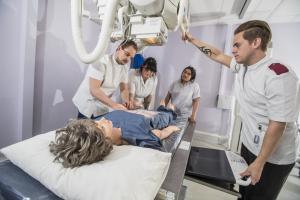This Welcome website will help you on your way to starting your journey as a Bangor student. It will direct you to all the essential information you will need as you settle into your life as a student.
Our Welcome Week is the ideal introduction to University life. It gives you the chance to make new friends and meet academic staff as well as finalise your modules, and find your way around before you start your studies.
Our Peer Guides are specially trained second and third year students who are on hand to help you to settle in. Look out for them in their brightly coloured shirts - they will be out in force greeting new arrivals and encouraging everyone to join in all the activities.





